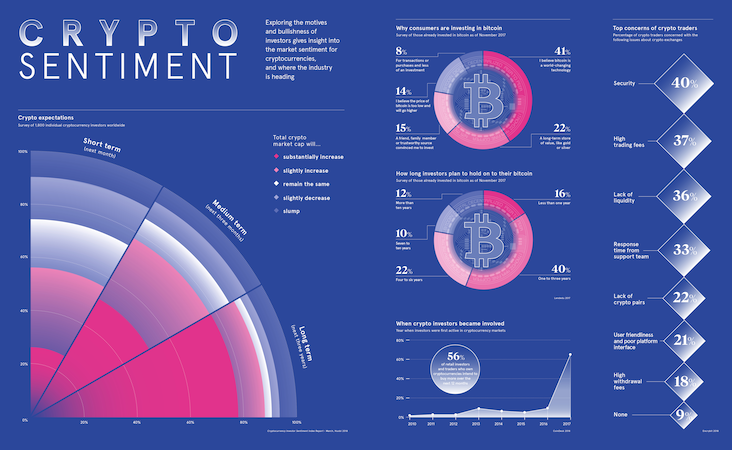Join Our Telegram channel to stay up to date on breaking news coverage
Despite a turbulent end to 2022 for the cryptocurrency sector, the vast majority of users are still optimistic about the future of cryptocurrencies and are unfazed by the turbulence the market has seen recently. 75 percent of respondents indicated they are very confident or moderately confident in the future of cryptocurrencies, according to recent study from Paxos, the top regulated blockchain infrastructure & tokenization platform. Furthermore, 72% of respondents said they were not at all concerned about the volatility that the crypto markets have seen over the past year.
In addition, consumer trust in intermediaries for holding cryptocurrency remains high, with 89 percent of respondents saying that they still trust banks, crypto exchanges, and/or mobile payments apps to hold their cryptocurrency, despite the high-profile collapses and oversight problems resulting from the implosion of FTX and others.
Customers have a strong desire to integrate cryptocurrency more fully into their daily financial lives, specifically financial transactions. When asked what their preferred use cases for cryptocurrency are, the top three answers included paying for products and services (42 percent), using credit cards or loyalty programs (38 percent), and sending money to friends and family (38 percent) (34 percent). Day trading (52%) and long-term investing were among the other popular use cases (36 percent).
This widespread interest highlights the chance for banks and traditional financial institutions to improve the client experience by utilizing cryptocurrency to broaden their product offerings. Banks have a significant opportunity to influence the future success of cryptocurrencies. The percentage of respondents who said they would likely or very likely buy cryptocurrency from their primary bank if it offered it rose to 75% from 20% in 2022. Furthermore, 40 percent of respondents said they would be encouraged to invest more in cryptocurrency if more businesses accepted cryptocurrency payments, while 45 percent of respondents said they would be encouraged to invest more in cryptocurrency if banks and other financial institutions adopted it more widely.
Despite concerns that the turbulent end to 2022 would stifle consumer use of cryptocurrencies, research reveals that people want greater, not lesser, integration of cryptocurrencies into their financial lives. People are seeing cryptocurrency as a more important part of their financial lives, and traditional businesses and financial institutions who can provide the experiences customers want in 2023 could dominate the market for many years to come.
- Crypto investment to jump despite FTX and Alameda collapse: Among those who had heard about and followed the bankruptcies of FTX and Alameda Research, the majority (57 percent) stated that they plan to acquire more cryptocurrency or do nothing as a result of the news.
Banks have significant crypto prospects with older customers. When asked whether they would be very likely to acquire cryptocurrency via their primary bank, 81% of respondents aged 35 to 55+ indicated that they would. Just 63% of respondents between the ages of 18 and 34 indicated that they were either very likely or likely to do so. - National media struggles to keep up with cryptocurrency news: When asked what sources they use to research bitcoin investments, consumers most frequently cited social media (42 percent) and cryptocurrency-specific websites (48 percent). Traditional sources such as the national media (36%) and financial advisors came next (34 percent).
About Paxos’ Study on Bitcoin Adoption and Purchase Habits
Between January 5 and January 6, 2023, Paxos and the research firm Pollfish conducted an online survey with more than 5,000 participants. Individuals had to be citizens of the United States, be at least 18 years old, and earn more than $50,000 annually as a household. Also, they had to have recently purchased cryptocurrency and have a bank account.
Related
- Best Crypto Presales
- Blur NFT Airdrop & $BLUR Price Prediction – Best Crypto to Buy Now?
- DeFi and NFTs
Join Our Telegram channel to stay up to date on breaking news coverage


